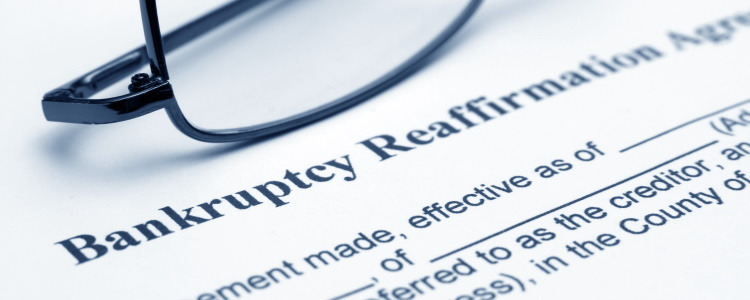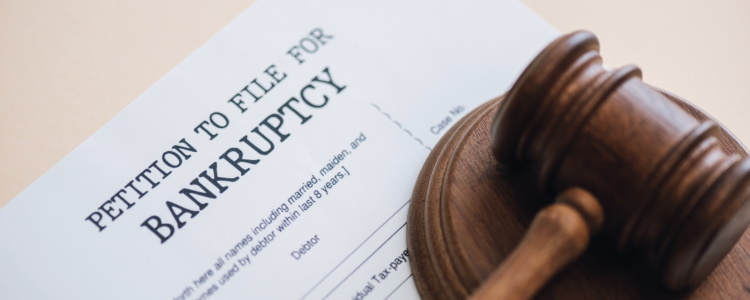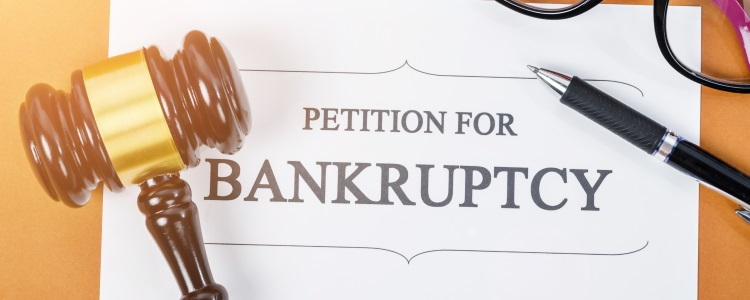You don't always have to lose your car when you file bankruptcy. However, whether or not you can keep your vehicle depends on three things: the type of bankruptcy you're filing, if you're up to date on your car payments, and if the equity in your vehicle (if any) is exempt. Let's take a closer look at how you may not have to give up your ride.
Which Type of Bankruptcy Are You Filing?
 Keeping your car is often easier in a Chapter 13 bankruptcy, rather than a Chapter 7 – especially if your vehicle has a lot of equity or you're behind on your loan payments. This is because a Chapter 13 is a reorganization bankruptcy where you and your trustee make a plan to repay your creditors over a period of either three or five years.
Keeping your car is often easier in a Chapter 13 bankruptcy, rather than a Chapter 7 – especially if your vehicle has a lot of equity or you're behind on your loan payments. This is because a Chapter 13 is a reorganization bankruptcy where you and your trustee make a plan to repay your creditors over a period of either three or five years.
Keeping your car during a Chapter 13 bankruptcy means you must stay current on your payments. Missing scheduled payments during this time could result in loss of your vehicle, or dismissal of your bankruptcy altogether. If you're already behind when you file, any past due payments are also made up in your repayment plan.
In a Chapter 7 bankruptcy, on the other hand, you typically give up your nonexempt property, which may include your car. A Chapter 7 bankruptcy is also called a liquidation bankruptcy, because your trustee liquidates – or sells – your nonexempt property in order to pay back your creditors.
If you want to keep your vehicle during a Chapter 7, you have to first determine if the amount of equity in it is exempt, and whether or not you're behind on payments.
Does Your Car Have Exempt Equity?
Most states have some form of car exemption that’s allowed when you file bankruptcy, but the exemption amount varies from state to state.
If your vehicle is worth more than you owe on its loan, you have equity. In this case, your trustee is likely to sell your car if the equity exceeds the exemption amount. You're then given the exempt portion of the proceeds, and the trustee divides up the rest for debt repayment.
Are Your Car Payments Up to Date?
If your vehicle falls under the exemption limit for your state, you're allowed to keep it as long as you're up to date on your payments. If you're behind on payments and your car is exempt, you must pay the past due amount in order to keep it.
If catching up on payments isn't something you're looking to do, you typically have two options: redemption or reaffirmation.
If you choose to redeem your auto loan, you have to pay the lender the current value of the vehicle immediately. In this case, your car has to either be exempt or your trustee has to have chosen not to sell it.
Your other option for keeping your vehicle in a Chapter 7 bankruptcy is to reaffirm the debt. In this case, you have to sign a new payment agreement with your lender, and you cannot miss a payment either during or after your bankruptcy.
The Bottom Line
It is possible to keep your car when you file bankruptcy if it meets certain qualifications. If you filed bankruptcy and weren't able to keep your vehicle, the good news is that there are dealers and lenders available that can help you get another car loan, even during or after your bankruptcy.
At Auto Credit Express, we want to help you find a local dealership that has the resources you need to get a vehicle, whether you're going through a bankruptcy, have bad credit, or just don't have any credit at all.
Our process is fast, free, and simple. Just fill out our no-obligation online auto loan request form, and we'll get to work matching you with a special finance dealer in your area!
















